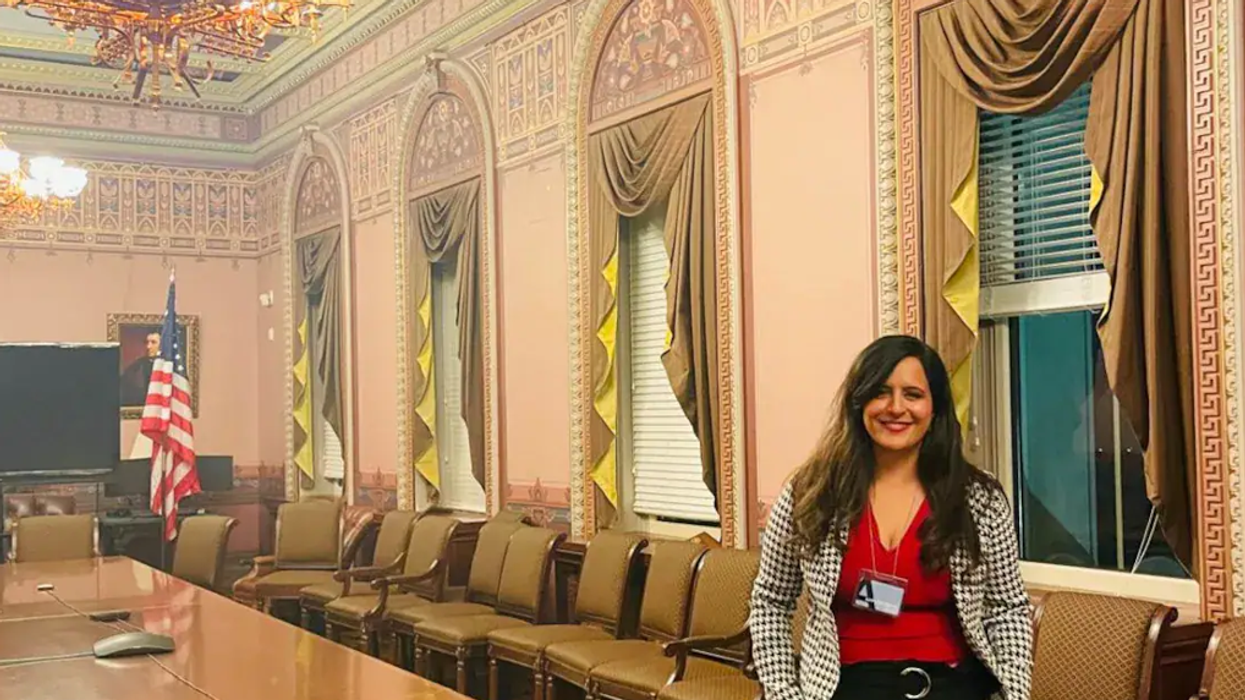KRYSTLE KAUL, an Indian-origin foreign policy and national security expert with roots in Kashmir, has announced that she will run for the US House of Representatives from Virginia with a focus on core issues like public safety, education and healthcare.
Kaul, if elected in 2024, would be only the second Indian-American woman to be elected to the House of Representatives after Congresswoman Pramila Jayapal.
Jayapal’s sister Susheela Jayapal has also thrown her hat in the race to the Congress from the third Congressional District of Oregon.
Both Kaul and Susheela Jayapal, from the Democratic Party, will have to win the party’s primary next year to bag the party’s nomination for the November 2024 general elections.
Fluent in eight languages, including Hindi, Punjabi, Dari, Urdu and Arabic, Kaul, the first Kashmiri-origin person to ever run for Congress, said her decision to run for the 10th Congressional District of Virginia came after Democratic Congresswoman Jennifer Wexton who has represented the constituency since 2019 announced her decision not to seek re-election.
Kaul has spent her professional life in the national security establishment from the Pentagon to think tanks and the defence industry.
She said education, healthcare and public Safety are the “three core issues” she would focus on in her campaign.
The 10th Congressional District of Virginia encompasses parts of Virginia that have one of the highest concentrations of Indian Americans and South Asians in the state, like Loudoun County, Fairfax County and Prince Williams County.
Elaborating on her promises to the electorate, she said: “The first foremost being is education…The second one is improving our healthcare system here.
“We have a lot of small business owners and just making healthcare more affordable and more accessible. So from prescription drugs to seeing specialists, that is something that is a concern. And the third is public safety, making sure we have safe neighbourhoods, safe schools, safe communities,” Kaul said.
Kaul said when it comes to national security, she would take a very strong stance on counter-terrorism.
As a child, at her home in Long Island, where she grew up, she very often heard stories about the conflict in Kashmir from her father.
“..that was when my father was sharing accounts of the tension in Kashmir. I was very interested in learning more about Kashmir. I made it a point to focus my studies on understanding the conflict there…,” she said.
“I had a desire to eventually run for Congress. But obviously, it’s a path. It’s a journey to get there. So I first devoted my studies, my first three degrees, to understanding diplomacy, negotiation, political science, and all the theory that you need to understand,” she said.
“So, I have fallen in the footsteps of (Congresswoman) Abigail Spanberger (a former CIA officer). There are about nine democrats who have entered Congress with prior service in the Department of Defence… several of whom I know personally as well,” she said.
Kaul, who has travelled to more than 70 countries, was born and raised in Long Island, New York.
Her father, who is from Safapora in Kashmir, came to the US at the age of 26. Her mother, a Punjabi from Delhi, migrated at the age of seven.
“My father has worked in the insurance business and my mother has done work in real estate,” she said.
After Long Island in New York, Kaul spent a few years in Wayne, New Jersey where she attended Vidyapith as a kid and she studied Sanskrit Vedic heritage, Hindi, mythology, the religion.
She shifted to Washington DC when she was 17 for college education.
She graduated with a BA from American University, MAs from Brown University and Johns Hopkins University (SAIS), and has a PhD in Political Science in progress at Brown University.
A national leader in the defence and intelligence community, she served as a director (GS-15) of the Defence Threat Reduction Agency at the Department of Defence, the director of Strategic Communications of the US Air Force and NATO for General Dynamics Information Technology, and as an Intelligence Political-Military Expert at US Central Command.
“The majority of my career has been with the Department of Defence. I worked for a number of large defence contractors and consulting firms, including Deloitte, General Dynamics, Lidos, and Booz Allen Hamilton,” she said.
(PTI)





